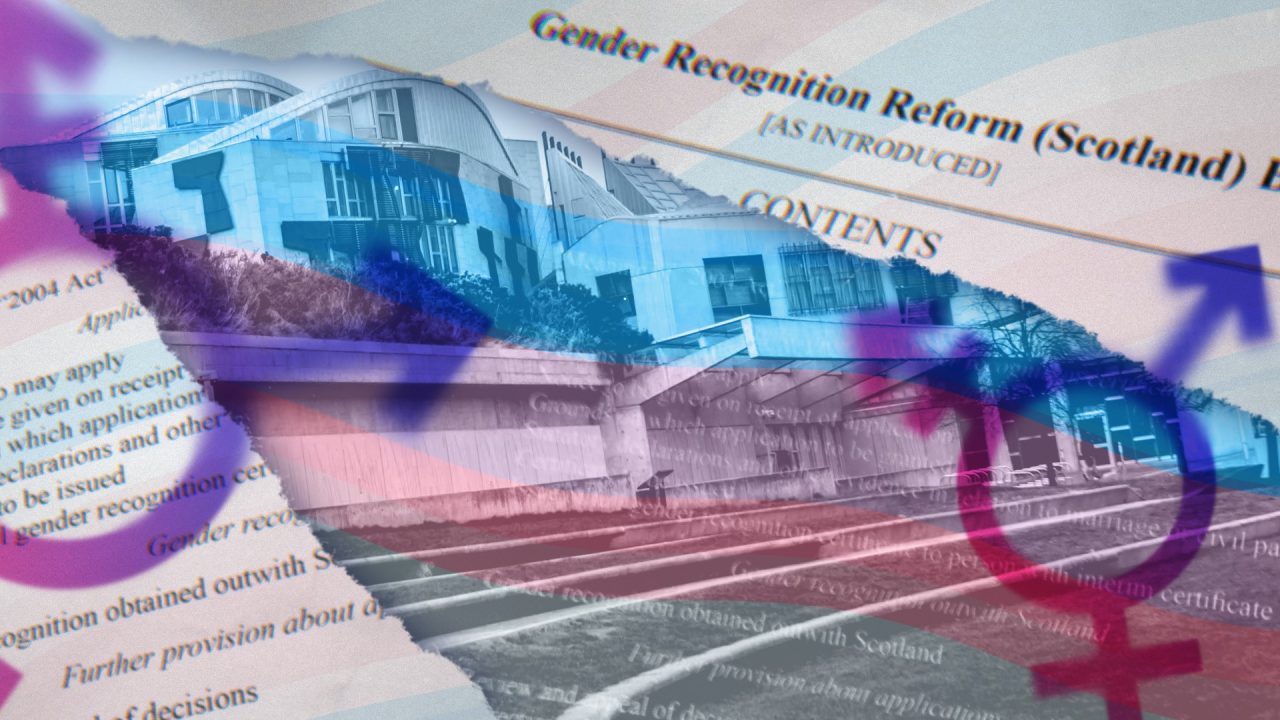Blocking controversial gender reforms in Scotland because of a “policy disagreement” is “inconsistent with the constitutional principles” of the UK, the Lord Advocate has argued.
Dorothy Bain KC kickstarted the significant constitutional battle between the UK and Scottish governments in the Court of Session in Edinburgh on Tuesday as she argued against Westminster’s use of the Section 35 order of the Scotland Act to prevent the Gender Recognition Reform (Scotland) Bill gaining royal assent.
In her opening remarks, Ms Bain told the hearing, presided over by Judge Lady Haldane, that Scottish ministers believe the order is “unlawful” and want it dropped.
Scottish secretary Alister Jack triggered the never-before-used power of the Scotland Act – the legislation which established the Scottish Parliament – to halt gender laws which sought to simplify the process for trans people to self-identify and obtain a gender recognition certificate (GRC).
Ms Bain told Scotland’s highest court the decision would effectively mean Holyrood was not able to legislate on issues which Westminster disagreed with.
She said: “There are those who disagree with the Bill or those who would have legislated differently, or not at all.
“It is apparent from the respondent’s answers that the Secretary of State is within that number.”
She went on to argue the decision to use the Section 35 order did not go through adequate scrutiny in the House of Commons, requiring the court to “occupy dead ground and stepping into the vacuum” to prevent the “misuse of executive power”.
Ms Bain said: “It would be inconsistent with the constitutional principle of parliamentary accountability for the UK Government to be able to veto Scottish legislation simply on the grounds of a policy disagreement.”
The Lord Advocate said if the secretary of state really had concerns about the contents of the Holyrood legislation, he would have raised it during multiple consultations and scrutiny of the Bill in the Scottish Parliament.
She said: “If the secretary of state had such fundamental concerns, it is striking there was not a whisper of them through the various consultations and the earlier stages of the Bill’s parliamentary process.
“Indeed, the UK Government got sight of this Bill and the appropriate supporting documents before the Bill was introduced to the Scottish Government.”
However, Lady Haldane interrupted Ms Bain to state that the UK Government did not have a requirement to consult with the Scottish Government prior to the Section 35 order.
Later in the session, the Lord Advocate then went on to address arguments that the Scottish legislation infringed on reserved UK Equality laws, arguing the Bill only alters the process of obtaining a GRC, not the effect of the certificate.
She also said no explanation was given on what the Secretary of State meant when he said the legislation would have adverse effects on UK tax IT systems, arguing Mr Jack should explain his rationale, rather than Scottish ministers “to try to work out what he was on about”.
The Scottish legislation seeks to change the age at which a person can obtain a GRC from 18 to 16, and removes the requirement of a gender dysphoria diagnosis.
The UK Government’s argument is expected to be set out by the Advocate General on Wednesday afternoon, with the three-day hearing expected to conclude on Thursday.
When Scotland’s First Minister Humza Yousaf confirmed the legal challenge in April, he said it was necessary to “defend the Scottish Parliament’s democracy from the Westminster veto”.
Prime Minister Rishi Sunak said at the time his ministers had taken “careful and considered” advice before blocking the legislation, with concerns around how it impacted the reserved Equalities Act.
Follow STV News on WhatsApp
Scan the QR code on your mobile device for all the latest news from around the country



























